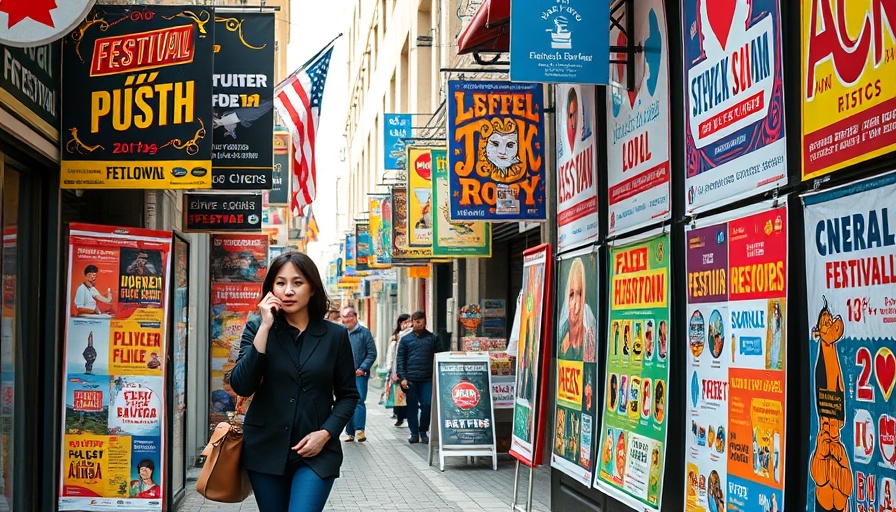
The Edinburgh Festival Dilemma: Struggling for Support
The Edinburgh festivals, a cornerstone of the UK's cultural landscape, are facing a significant funding crisis as they attempt to recover from the withdrawal of corporate sponsorship. One year after activist pressure led Baillie Gifford, a prominent asset manager, to suspend its backing, the festivals are grappling with a 20% reduction in performances. This decline occurs even with an £11.75 million, three-year deal announced by Creative Scotland to support cultural initiatives, leaving many to ponder the long-term implications of this shift in funding strategy.
Historical Context: The Importance of Edinburgh Festivals
Established in 1947, the Edinburgh International Festival was created as a platform for cultural exchange post-World War II. Over the decades, it has grown into one of the most respected arts festivals globally, attracting visitors and performers from all over the world. The festival season—including the renowned Edinburgh Festival Fringe—draws millions to the city and serves as a significant economic engine for the local economy. With a rich legacy, the current struggles of these festivals signal a worrying trend that could impact both cultural offerings and economic vitality.
Activism and Its Consequences: Corporate Sponsorship in Decline
The arts sector has seen increasing activism targeting corporations involved in controversial fields. In Edinburgh's case, the Fossil Free Books campaign prompted the departure of Baillie Gifford, raising a flag over the complexities of corporate social responsibility in funding cultural events. As Julie Finch, global CEO of Hay Festival, pointed out, the landscape remains "competitive." However, the fear of backlash from activists dissuades many corporations from entering sponsorship agreements, leading to fears about the festivals' sustainability.
The Economic Impact on Edinburgh
The financial implications of these funding challenges are significant. The festivals traditionally rely on private sponsorship and ticket sales to cover up to 30% of their budgets. With declining corporate investment and an uncertain ticket sales environment, many organizations may struggle to maintain their ambitious programs. Francesca Hegyi, CEO of the Edinburgh International Festival, stated, "It enables us to continue with more confidence but doesn’t allow us to deliver on our ambitions." This reflects a broader concern in the arts community regarding the sustainability of world-class cultural offerings without sufficient corporate support.
Future Outlook: Resilience in Arts Funding
As the Scottish Government steps up its commitment to arts funding—aspiring to reach £100 million per year by 2028—the future of these festivals remains tied to broader economic conditions and sponsorship dynamics. With recent funding designed to uplift local cultural efforts, there is hope that further investment could reinvigorate Edinburgh's festivals. However, without an effective strategy for attracting renewed corporate interest, the trend may continue to decline.
The Value of Arts in Society: What’s at Stake
Art plays a pivotal role in societal development, promoting cultural understanding and social dialogue. The Edinburgh festivals are not just about entertainment; they represent a vital space for encounter and exchange among diverse cultures. Losing this platform also means losing opportunities for innovative dialogue and international collaboration beneficial for all. As such, not only festival-goers but local businesses, the tourism sector, and the wider community all stand to lose from a diminished arts scene.
Corporate Responsibility and Cultural Support: A Call to Action
The current crisis highlights the essential need for a more proactive stance on corporate responsibility regarding the arts. Businesses are encouraged to recognize the value of arts sponsorship—not merely for visibility but as vital support for cultural heritage. Engaging in dialogue about the role of the arts in community building may encourage more businesses to become involved, curbing the current trend of corporate withdrawal.
In conclusion, the Edinburgh festivals are at a crossroads. Their ability to adapt to these economic pressures and engage in meaningful partnerships may determine their future success. As the community rallies to sustain these cultural landmarks, prioritizing sponsorship from socially responsible businesses could be the key to revitalizing the arts landscape in the city.
 Add Row
Add Row  Add
Add 



Write A Comment